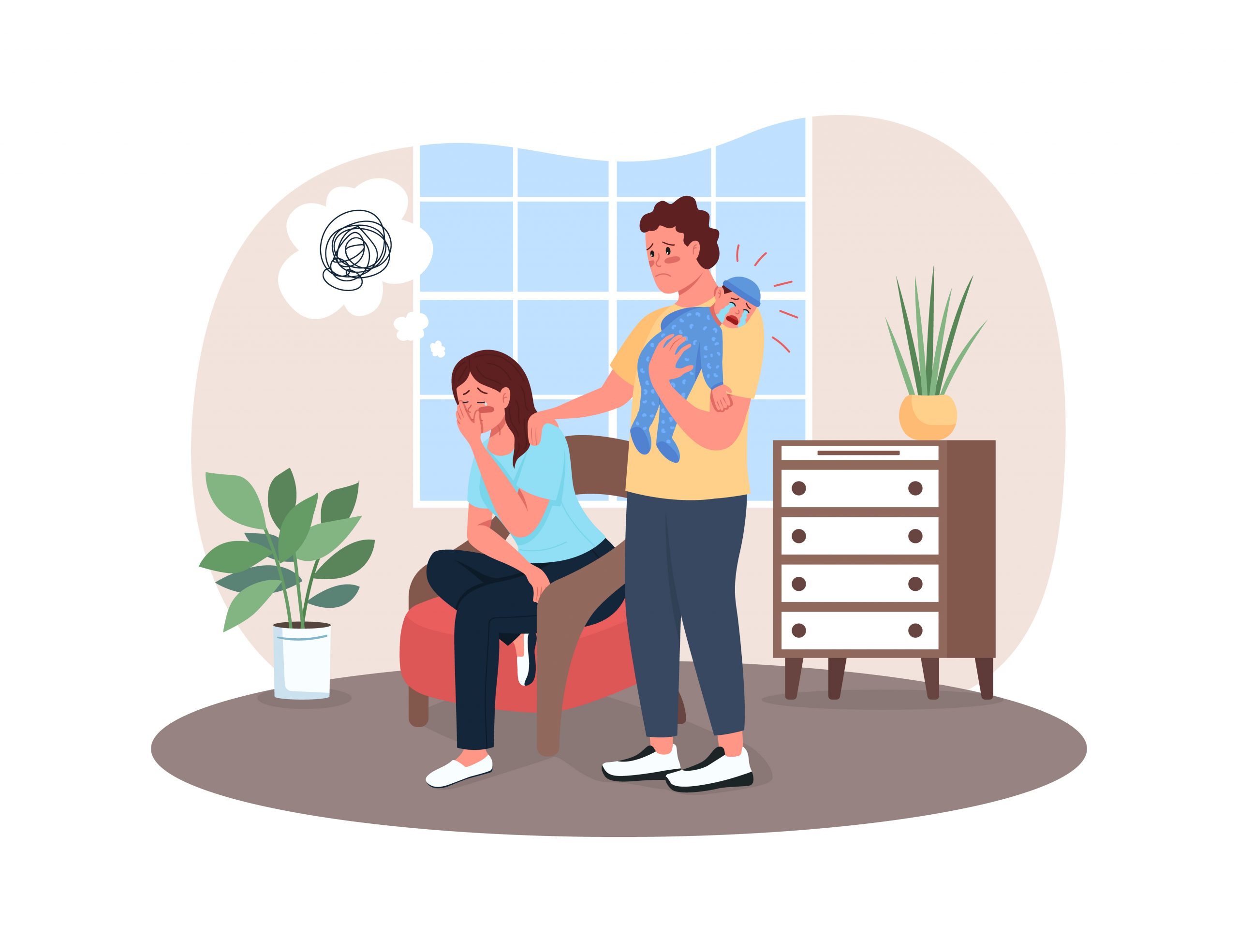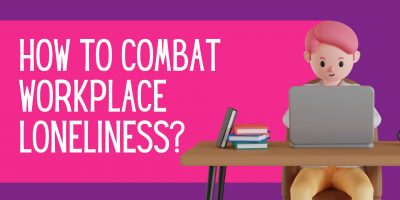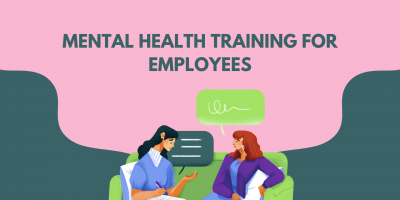
“January Blues” at Work
For some employees, it manifests as a seasonal dip in productivity and motivation. But for others, January Blues hints at more profound challenges within the workplace.
Diversity, Equity and Inclusion


CEO and Founder of Breadnbeyond

Digital Marketing Manager of Explainerd

Co-Founder of Milkwhale
In 2019, the term “secret parenting” first appeared – encapsulating how parents often have to hide or downplay their caregiving responsibilities in the workplace. A plethora of research supports that women often hide their pregnancies or sicknesses related to them to avoid appearing unreliable.
However, the reality is that new mothers deal with hormonal changes, a whirlwind of emotions, chronic exhaustion, and changes in routines, relationships, and priorities after childbirth. For many, the added stress of returning to a workplace that is often hostile towards working moms is the catalyst that exacerbates mental issues that can lead to postpartum depression.
Unsurprisingly, postpartum and peripartum depression (PPD) is the most common mental disorder experienced after childbirth. According to CDC, as many as one in eight women experience PPD, although these figures remain limited due to the stigma around the issue.
So, what happens while you’re in the midst of it or recovering, and you’re due to return to work? This article explores options for this transition and shares tips on handling postpartum depression and returning to work.
The birth of a baby is one of the most significant events in a mother’s life that can trigger many powerful emotions. From bliss and joy to anxiety and fear, emotions can sometimes spiral into something unexpected: depression.
Many new mothers experience the “baby blues” – a mild and brief bout of depression lasting for a few days or weeks after delivery. Some may experience a more severe and long-lasting form of depression known as postpartum or perinatal depression.
What is postpartum depression?
According to the National Institute of Mental Health, perinatal depression is a disorder that affects women during or after pregnancy. Perinatal depression includes depression that starts during pregnancy, known as prenatal depression, and depression that begins after the birth of a child, called postpartum depression.
Postpartum depression is not a weakness or a flaw – but rather a complication of childbearing that can take the form of feelings of extreme sadness and anxiety.
Symptoms of postpartum depression usually develop within the first weeks after giving birth but may also begin later – up to a year after birth. Postpartum depression is often mistaken for baby blues, but the symptoms are more intense and may interfere with a mother’s ability to take care of themselves and others, including their newborn.
Symptoms usually include:

Women are at a higher risk of experiencing mental health difficulties during and after childbirth. There are several physical and emotional issues that may contribute, such as hormonal changes, sleep deprivation, loss of identity and personal time, and shifting self-image. Other related circumstances that may increase the chances of postpartum depression include:
There is no single cause of postpartum depression, and there are no rules for determining who will experience it. PPD can affect any mother – regardless of age, race, culture, income, or education, and women shouldn’t feel ashamed of seeking help.
Postpartum depression shouldn’t be confused with “baby blues,” a term frequently used to describe the rollercoaster of emotions and tiredness many women experience after giving birth.
It is essential to recognize that the “baby blues” may last from a few hours to several weeks, but if the symptoms persist or intensify after two weeks, new moms should seek help. Postpartum depression must be taken more seriously as it can be severe and significantly interfere with the lives of new moms and their entire families.
Adjusting to a new routine, figuring out parenting, and bonding with the little one, while at the same time juggling all the responsibilities of the workplace are only some of the challenges of modern motherhood.
Even for those moms that love their job, transitioning back to the workplace means separating from their child and experiencing feeling as though they are choosing their career over their baby. Therefore, feeling depressed about going back to work after maternity leave is expected.


“Going back to work after having a baby can be tough for any mother, but it can be especially difficult for those suffering from postpartum depression.
Mixed with rapid hormone shifts, lack of sleep, and the stress of juggling a new life, working mothers with postpartum depression often feel like they’re barely hanging on,” comments Andre Oentoro, CEO & Founder of Breadnbeyond.
The average maternity leave in the U.S. lasts only 10 weeks, and due to financial reasons, returning to work for most mothers is inevitable. However, the stress of returning to work after maternity leave is a risk factor for exacerbating or triggering new PPD symptoms.
One study explored the link between postpartum depression and returning to work and found that maternity leave equaling 12 weeks or less is an additional risk for PPD symptoms.
Moreover, women returning to work are afraid to request additional time off work for postpartum depression treatment or other accommodations, as they often worry about the professional consequences of such a move.
Survey findings suggest that as many as 35% of working parents do not take time off work or parental leave since they fear losing their jobs or not advancing professionally. Unfortunately, these attitudes exist in some workplaces, and toxic work environments can be extremely harsh toward new moms.
When we reach a new lowest point, it is easy to feel like we will never feel normal or function again. However, it is important to remember that postpartum depression is a common medical condition that is both treatable and temporary.
Postpartum depression is treated like other types of depression. Peer support, counseling and therapy, and medications can help. Treatment plans depend on the nature, symptoms, and severity of the individual’s postpartum depression.
For those struggling to cope with PPD, talking with a therapist may help. Reach out to your doctor, counselor, or therapist about support groups for women with postpartum depression and parenting resources for new moms. The sooner you seek help, the sooner you’ll be equipped to deal with depression.
Natasha Rei, Digital Marketing Manager of Explainerd, comments, “Postpartum depression can be a very serious condition, and it’s important to discuss your feelings and options with your doctor before making any decisions. There are many programs available that can help new mothers transition back to work, such as maternity leave, flexible hours, and telecommuting.
Whatever you decide, make sure you take the time you need to adjust both physically and emotionally to live with a new baby. And don’t be afraid to ask for help from family or friends.”
Dealing with PPD in the workplace may make it more difficult to find your professional footing. While for many new parents, the first instinct is to handle PPD problems internally, there are benefits to sharing your experience with a doctor, coworker, or manager to ensure your work isn’t contributing to your health issues.
Andre Oentoro offers some great advice on dealing with postpartum depression and work by sharing, “If you’re struggling with postpartum depression and going back to work, here are a few actionable tips to prepare for your return:
Most companies have policies for mental health in the workplace and want to provide support, so having an open and honest conversation with your boss may result in finding a way to ease you back to work.
Various state and federal laws consider mental health disorders like postpartum depression to be a disability when it interferes with the ability to work or live your life. Therefore, federal, state, and local laws provide certain workers experiencing PPD the right to receive accommodations at work and be free from workplace discrimination.
Moreover, employees that are affected by pregnancy or related conditions must not be treated differently. Postpartum depression is a condition related to pregnancy under the PDS. For example, if you work at an organization with 15 or more employees, and your employer refuses to accommodate you, cuts hours, demotes you, or fires you – such treatment may violate the PDA.
While pregnant women are protected from discrimination, they can be fired for legitimate business reasons. Yet, too often, pregnancy discrimination is masked as a performance issue.

Fortunately, women suffering from postpartum depression may be eligible for reasonable accommodations if they can still perform the essential functions of their job with a little assistance. There are no hard rules on accommodations, so women may request shifting work hours, such as coming in earlier or later in the day, working from home, or a phased transition back to the workplace.
To qualify under ADA’s definition of a “disability”, postpartum depression must substantially limit a major life activity, like eating, sleeping, or working. You are entitled to reasonable accommodations, unless providing accommodations would create an undue hardship (difficult or expensive) for the employer.
Postpartum depression and returning to work may be a complex combination, but it is crucial to support women through accommodations and encourage work participation. As a result, women have access to broader social support systems, greater financial resources, access to child care providers, and continuation of health care under employer-provided health insurance.
PPD is an illness, and just like any other sickness – if you’re not well enough to return to work at the end of your maternity leave – there are other options. Understanding what type of extended maternity leave for postpartum depression you’re eligible for ensures you take the time to recover when needed.
The best way to treat PPD is by visiting a doctor who can evaluate your symptoms and devise a treatment plan. There are also steps that can be taken each day to help cope with postpartum depression:
New mothers must realize that it is alright to ease back into their work. Some things to consider that may make the transition smoother between postpartum depression and returning to work:
Be proactive and start figuring out a work schedule that works for you and your family, and communicate with your employer. Put forward the best proposal and work with your employer to problem-solve and arrive at a point that works best for you and your wellbeing.
Ebnu Sudarso, Co-Founder of Milkwhale, comments on managing postpartum depression at work, “You should also make use of your maternity leave and be honest about what you’re going through if you’re still not prepared to go back to work. The key to handling postpartum depression is to take your time to heal your body and mind.”
Establishing a family-friendly culture means giving new moms space and time to recover from pregnancy, childbirth, and all other challenges that come with motherhood.
Handling postpartum depression and returning to work for mothers may seem daunting, but with the proper support, moms can manage their symptoms and thrive both at home and at work.
Browse our curated list of vendors to find the best solution for your needs.
Subscribe to our newsletter for the latest trends, expert tips, and workplace insights!

For some employees, it manifests as a seasonal dip in productivity and motivation. But for others, January Blues hints at more profound challenges within the workplace.

Loneliness can be a serious problem affecting not only employees’ mental health but also the bottom line for businesses. What are the tell-tale signs of workplace loneliness, and what can employers and organizations do to reduce or mitigate it?

Entering the workforce amidst a mental health crisis, Gen Z pushes for better employee well-being. What can employers do to address this issue effectively?

The current state of mental health is in dire need of improvement. Mental health training for employees emerges as a solution in the workplace, especially when it’s rooted in empathy and acceptance.
Shortlister Connect is a tool specifically designed to be utilized by the HR and Procurement/Sourcing teams within mid-size, large and jumbo employers. Shortlister Connect allows these teams to efficiently research & identify their optimal vendor partners, track existing vendor relationships & performance and “connect” with other employers to share successes and vendor experiences.
If you are not on the HR or Procurement/Sourcing team within an employer with over 200 employees, you will not be granted access to Connect. Examples of individuals that would not be granted access include, but are not limited to: vendors, students, practitioners, researchers, other non-employers or anyone that is unwilling to identify themselves will not pass our vetting criteria. If you are a consultant, Shortlister offers a specialized product for consultants, called Shortlister Select. You can email Tom Ciccotti at tciccotti@myshortlister.com to learn more about Shortlister Select.
***Shortlister retains the exclusive right to grant or deny access to any party to ensure the privacy of the vendors in our system.
Please login with your LinkedIn Credentials
Used by most of the top employee benefits consultants in the US, Shortlister is where you can find, research and select HR and benefits vendors for your clients.
Shortlister helps you reach your ideal prospects. Claim your free account to control your message and receive employer, consultant and health plan leads.